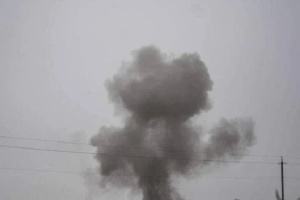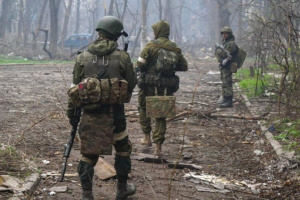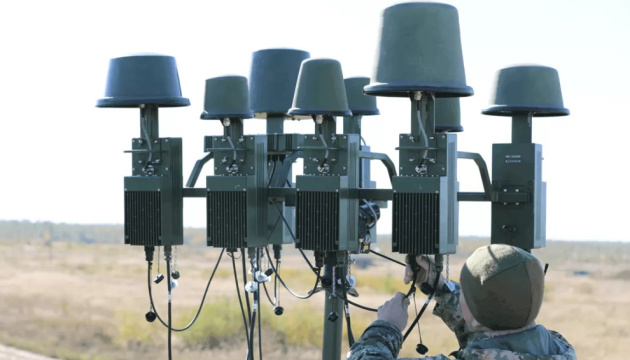
Purchase of EW equipment by local communities: idea is right, but there are nuances
The Air Force of the Armed Forces of Ukraine offered local authorities to take part in strengthening the state's air defense by purchasing electronic warfare (EW) equipment to protect communities from enemy missiles and drones.
"Russia has a powerful electronic warfare system, but we are also developing in this direction, we have enterprises that have been doing this for a long time. Today, many civilian enterprises are involved in the production of electronic warfare systems (...). Businesses are already thinking about protecting their companies with such means. This is the future," said Yuriy Ihnat, a spokesman for the Air Force of Ukraine, during the telethon.
That's basically all he said. He did not provide any other details, which raised many questions, namely: how realistic and difficult is it to implement, how much can it cost, how will local deputies and officials know what kind of electronic warfare equipment is needed, and most importantly, who will manage it?
Ukrinform asked for the opinion of experts, who generally positively assessed the proposal, but not without comments and reservations.
The idea of emergency response units for local communities is realistic, but everything rests on implementation
"There was some misunderstanding about the EWs, because Ihnat's statement was made almost simultaneously with Fedorov's statement about assembling drones at home. That's why many people were skeptical, saying that the state is shifting the issue of defense capability to local communities without explaining who to contact with this issue, where to buy these electronic warfare devices, how much they cost, what kind of devices they should be, where they should be placed, who will manage them, and so on.
But in general, the message is correct. I have voiced similar things myself. Critical infrastructure companies, such as DTEK (and others), should be allowed to buy electronic warfare equipment from manufacturers. Both Ukrainian and foreign. From specialized manufacturers! Put them on the balance sheet of these enterprises, and transfer their management to the military," Serhiy "Flash" Beskrestnov, a military expert in the field of communications, electronic warfare and electronic intelligence (EW), comments to Ukrinform.
And it is the military who should say what to buy, because then it all needs to be brought together into a single management system. According to the expert, this is the way our enemy has been going for a year.
"Mr. Ihnat is telling the truth, Russia does have a powerful electronic warfare system. Moreover, the Russians have one of the strongest electronic warfare systems in the world. They have dozens of plants that have been doing this for many years. And these are not just military plants. Now the Russian Ministry of Defense is also purchasing these "civilian" electronic warfare systems," emphasizes Mr. Beskrestnov.
When our drones started flying to Moscow, our interlocutor points out, the Russian government turned to big business: we cannot close all infrastructure facilities, so buy electronic warfare at your own expense and close your facilities yourself.
"Last year, a record number of tenders were held in Russia. They have already supplied a lot of these systems," the expert added.
Regarding local communities... Serhiy Beskrestnov says that it is obviously not a question of every Ukrainian village buying a radiation protection system: "This is absurd. On the other hand, there are already precedents when heads of civil-military administrations have asked local deputies to allocate funds from the budget to close a district or region. However, again, these systems should be transferred to the military for management."
It should not be the case that each community will buy, install and use something that is not clear.
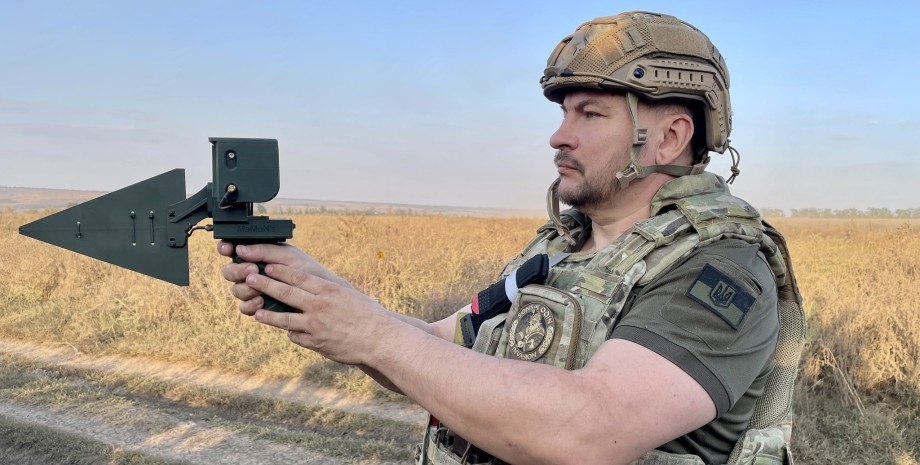
"Then we will have a complete mess. First and foremost, specialized experts/military personnel should formulate a clear list of requirements for these systems, i.e., what exactly is needed and where it can be found. They should help communities find high points where the equipment will be installed, help with connection and operation. We need to make sure that the electronic warfare system can be controlled remotely, so that all systems are brought together in a single control center. This is a very large set of tasks," emphasizes Mr. Beskrestnov. "We need a special agency to coordinate civilian issues, among other things.
Civilian administrations do not have any technical knowledge of the nuances of the work of the EW.
"The only thing they have is money from the local budget and a desire to protect themselves. I recently had a similar situation. I was advising a city, in particular on electronic warfare, and we were faced with the fact that they had no specialists at all," says the expert, "and I'm not talking about a whole host of other local issues that are not directly related to electronic warfare, but which will still need to be addressed.
"GPS jammers" should be placed at high points every 20-30 kilometers. But it happens that a suitable high point is a grain elevator owned by a commercial company: "So you have to talk to the owner, find out what the situation is with electricity, communication channels, etc. You have to resolve the lease/sublease issue and sign contracts. If there are any problems, for example, with the electricity supply, you need to connect it, install meters... Well, the mayor will not say in a conversation with the owner: "Give me free electricity because you owe me something." Of course, some people will meet with him, and some will not. This should also be understood."
Regarding the cost of electronic warfare... Serhiy Beskrestnov says that we do have many manufacturers of electronic warfare, such as Proximus, Tritel, Piranha-Tech, Quertus, etc. In addition, many developers have joined the Brave1 defense technology cluster.
"But domestic enterprises are very busy today. Alternatively, you can buy electronic warfare systems abroad, for example, in the UK, USA, Israel, and Scandinavia. Yes, a foreign product will be much more expensive: from USD 100,000 and up. "Our prices are also biting, but you can find one half as cheap - for USD 30-50,000,» he assures. "To cover a certain conditional city... Look, every 30 kilometers there should be an electronic warfare point, which costs (if we take the Ukrainian market) 30-50 thousand dollars. Somewhere, two such points are needed, somewhere three or more. You can do a rough estimate."
So, first, you need to study everything in detail, develop procedures and algorithms, create units that will deal with this, provide contacts of responsible persons who will tell you everything and give you advice.
We need to work closely with the Air Force of Ukraine, and everything must be clearly coordinated.
Anatoliy Khrapchynskyi, Deputy Director General of the company producing electronic warfare equipment, an aviation expert, says that local communities have long been purchasing electronic warfare equipment, though for the needs of the military, which is at "zero." We are talking about the same anti-drone guns, "dome" and "trench" electronic warfare devices, etc. The relevant tenders are available here.
"Regarding Mr. Ihnat's statement, I think he meant more powerful electronic warfare equipment that will help improve the protection of Ukraine's airspace from attacks by enemy drones and missiles. "We do have companies that are engaged in this, that can offer certain solutions," says Mr. Khrapchynskyi, "but mayors, for example, should not approach them and ask them: "What equipment can you recommend us?" They shouldn't buy anything on their own without understanding all the nuances of the work of the emergency response system. Close cooperation with the Air Force of Ukraine is needed here."

According to the expert, a separate office/department should be created at the headquarters of the Armed Forces to coordinate this work and give the manufacturer specific tasks for the electronic warfare equipment. And the issue of purchasing it is up to the city councils, which will be able to do it through subventions.
"How expensive are these products? The prices are very different, there is no single approach: some cities are located on the plains, some are in a pit, surrounded by mountains. Much depends on the number of suppression channels and the tasks at hand. An fpv drone is unlikely to reach Ternopil region, but a Shahed drone is quite possible. At the same time, Sumy region is at risk of attacks by both of these types of drones. This is just for your understanding. Our company, Piranha-Tech, has systems of different prices. For example, the powerful "Piranha 12 BSP," which can hit at 20 kilometers, costs UAH 11 million. I think that for big cities, this is a reasonable amount of money, as well as for the relevant business," Anatoliy Khrapchynskyi believes.
But the cost can be lower if the state gets involved. For example, it can help manufacturers in purchasing foreign components for electronic warfare systems, which in some countries are "dual-use" goods.
"That is, anyone and everyone can't just buy it anywhere, but at the state level, given the way the civilized world is supporting us today, it is possible," the expert emphasizes. "In general, it should be understood that electronic warfare is not a panacea, you can't win a war with electronic warfare alone, but electronic warfare is an important element in strengthening the country's defense capabilities.
It's scary to imagine when a company or community leader starts using electronic warfare means uncontrollably
Mykhailo Samus, director of the New Geopolitics Research Network, also notes that this idea is not new. For example, large commercial enterprises, production sites, warehouses, and logistics hubs in Western countries have long used this practice and may ban the flight of drones overhead.
"Of course, we're not talking about Shahed-type attack drones, but about small civilian drones that are launched for various purposes, such as surveillance. On the other hand, there are infrastructure facilities, such as a nuclear power plant, that are protected by the state. This can be done either by law enforcement agencies or by specially trained personnel of this facility who know how to use electronic warfare equipment," the military expert says.

But in any case, in the West, this issue is clearly regulated by the relevant government agencies. There, no one will allow electronic warfare equipment to be used uncontrollably, because, as the expert put it, it can "jam" and interfere with communications, control systems, civil aviation, etc.
"All of this is strictly controlled in the West, with appropriate certification and trained personnel. But this is if we are talking about the civilian component. If we're talking about the military component... Mr. Ihnat said that many civilian enterprises in Ukraine are now involved in the production of electronic warfare systems. But what kind of systems are we talking about?" Mr. Samus asks. "If we're talking about anti-drone guns, that's one thing. With the help of such a device, you can shoot down a small reconnaissance drone, but not a Shahed. Strike UAVs are "jammed" with much more serious systems that "cannot be bought at any army military store."
And even if you do, such systems should be used exclusively by the military: "Everything must be clearly coordinated, regulated, controlled and subordinated to a single command. It's scary to imagine if every manager of a company or community starts using electronic warfare equipment. What impact will this have on communication systems - state, commercial, military?"
"If the community wants to buy electronic warfare to fight the Shahed, it's a plus, but you should understand that it's not easy to fight these drones. We need to understand where we can "jam" them and where we can't, so that they don't fly into civilian objects," emphasizes Mykhailo Samus. "There should be defined defense lines, with forecasting - if you shoot down a target at point A, you need to understand where it will fly next and where it will "land. And here the expert repeats again: "This should be done by specialists, because if it goes uncontrolled, chaos will ensue, which is very dangerous during a war."
The operation of electronic warfare systems is a separate specialization. It takes time to master it
Journalist and military observer Denys Popovych said: "When it comes to anti-drone guns, it's one thing. However, even using them requires practice. But if we are talking about "heavy" electronic warfare systems, which are designed, in particular, to knock missiles off course, then this is not a product that is freely available."
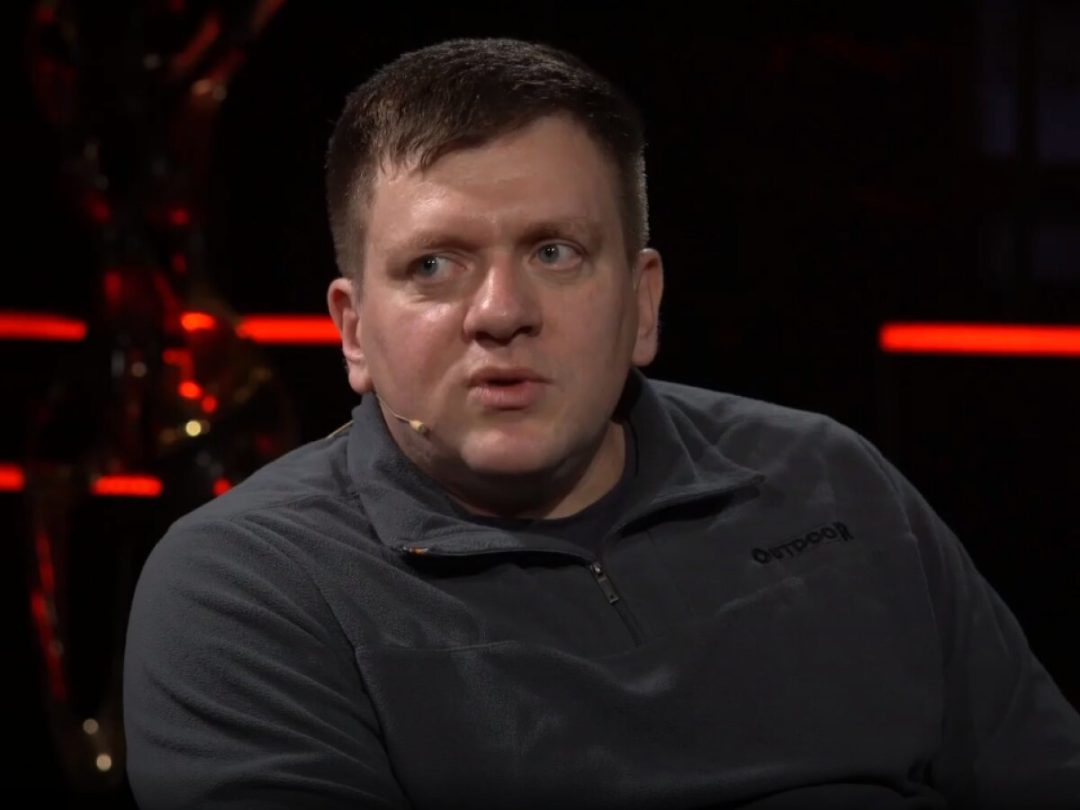
In addition, there are many different electronic warfare systems that perform different functions.
"The operation of electronic warfare systems is a separate specialization. It takes time to master it," the expert says.
The state and its authorized agencies and officials should be responsible for defense, not local communities
"The proposal to purchase electronic warfare equipment by local authorities is correct, but at the same time it looks quite fantastic," comments political expert Yevhen Savisko.
"After all, the details are a military secret and fall within the competence of the military. Just imagine discussing such issues at a city council session! The enemy will not have to spend money on a spy network. Local deputies and government officials will tell and show everything, and at the same time give away potentially vulnerable places in the settlements, and at the same time the whole country," the expert emphasizes.
In addition, different communities have different budgets, and different moods among deputies and officials. After all, business incomes are also different.

"So some people will buy state-of-the-art products, while others will buy cheaper ones that are not as effective? And some will not be able to buy anything at all? Many regions in Ukraine are subsidized," the expert reminds.
Third, wholesale purchases are one thing, and retail purchases are another.
"Prices will vary enormously. Whether you are buying emergency response equipment or potatoes. The financial logic is the same. The conclusion is that everything related to defense should be done centrally by the state and authorized agencies and officials. At the most, a separate account can be created to which all funds allocated by local councils for the purchase of electronic warfare equipment will be transferred," emphasized Yevhen Savisko.
Myroslav Liskovych. Kyiv


